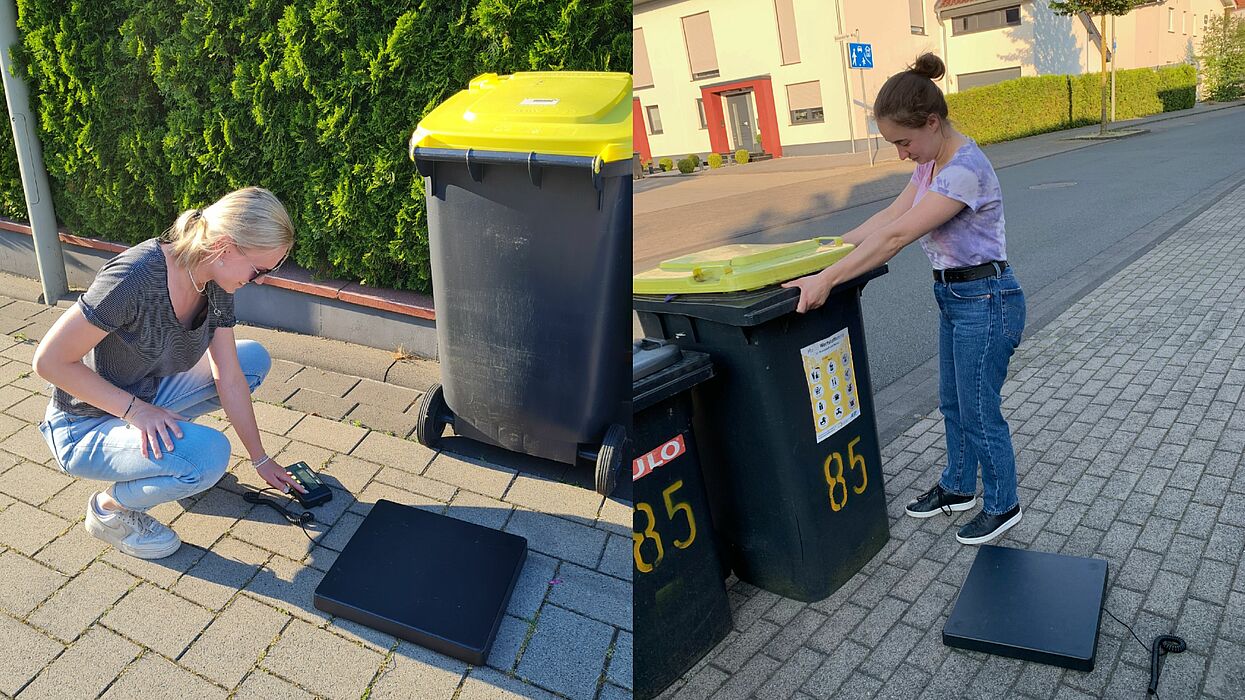Bachelor's thesis is dedicated to a problem facing society as a whole
11,000 thousand tonnes of plastic waste are produced - in the Paderborn district alone - every year. This is a major burden for environmental and climate protection. Two students at the University of Paderborn have now come up with a concrete proposal for solving this problem for society as a whole as part of their Bachelor's theses. Laura Hildesheimer and Marie Meise, who wrote their thesis in the field of economics (WiWi), investigated in an experiment in cooperation with the Paderborn Waste Disposal and Sanitation Company (ASP) how the waste in the yellow bins can be reduced in people's everyday lives.
Students use behavioural economics trick
Despite recycling and the ban on single-use plastic, far too much plastic packaging is still being used. "But since it is difficult to convince people to simply buy less packaging or even to ban it altogether, we wanted to find another solution," is the motivation of the two students, who used a trick of behavioural economics for the economic study. "We used the method of 'nudging', through which you can steer people towards a certain behaviour by giving them a small, often indirect hint. We wanted to find out whether people produce less waste if they know what quantities their neighbours generate." Hildesheimer and Meise studied 187 households in their project, which they divided into three groups in advance. After the first measurement, one of them received a flyer with tips on how to reduce waste, and the second group was also given the comparative weight with values from the neighbourhood. A control group received no flyer at all.
Clear differences between the two comparison groups
The result: The households in the first group reduced their plastic waste by an average of 350 grams. What sounds considerable at first glance is put into perspective by the comparative value. 1340 grams less weighed the yellow bins of the households with the reference to the waste consumption of the neighbours at the second measurement one month after the first check. "I don't supervise such an interesting project every day," says a pleased Prof. Dr. Wendelin Schnedler, Dean for Research and Young Academics at the Faculty of Economics. "The trend is clear. However, in order to make statistically valid statements, more data would have to be collected."
This text has been translated automatically.

